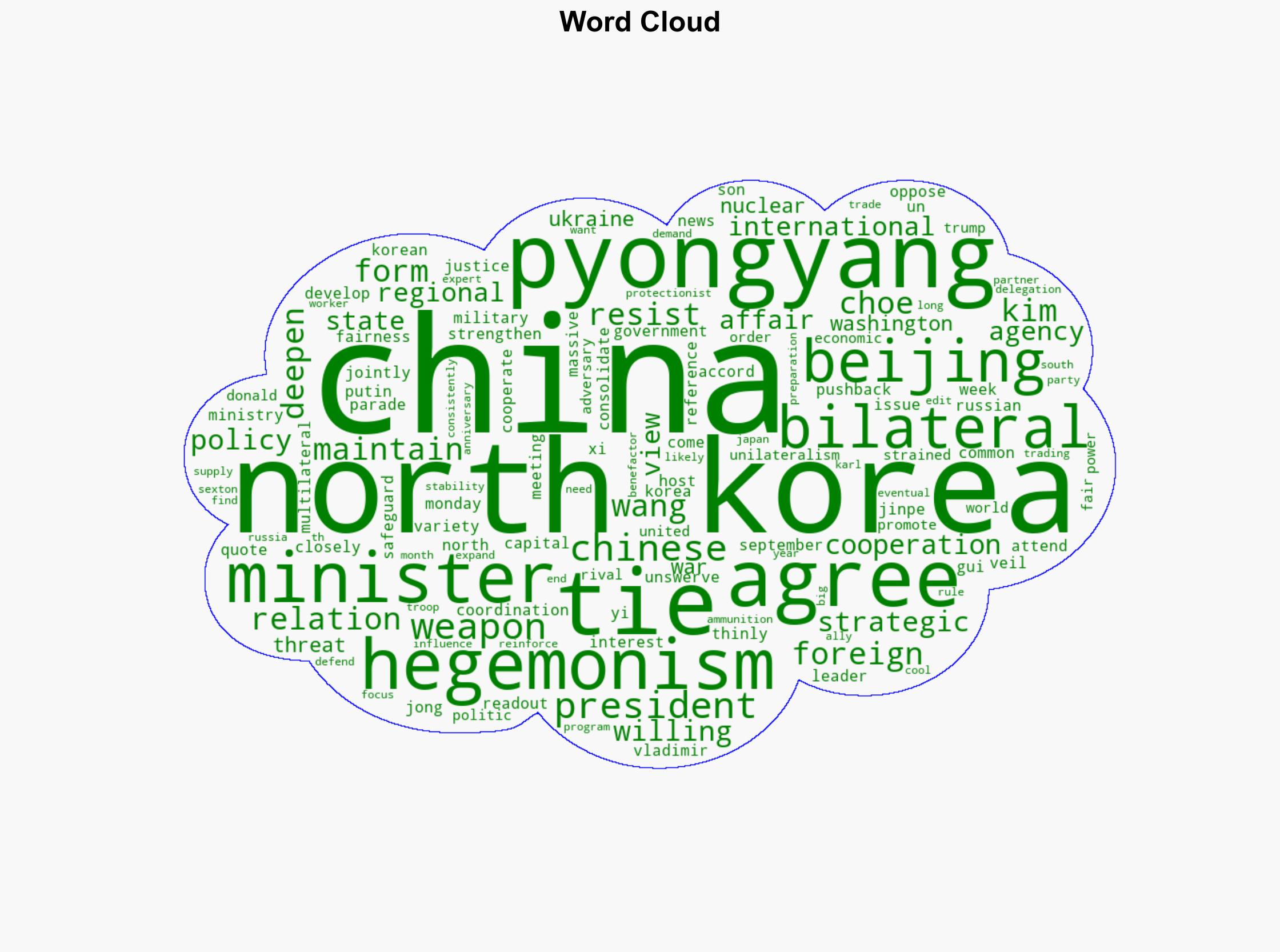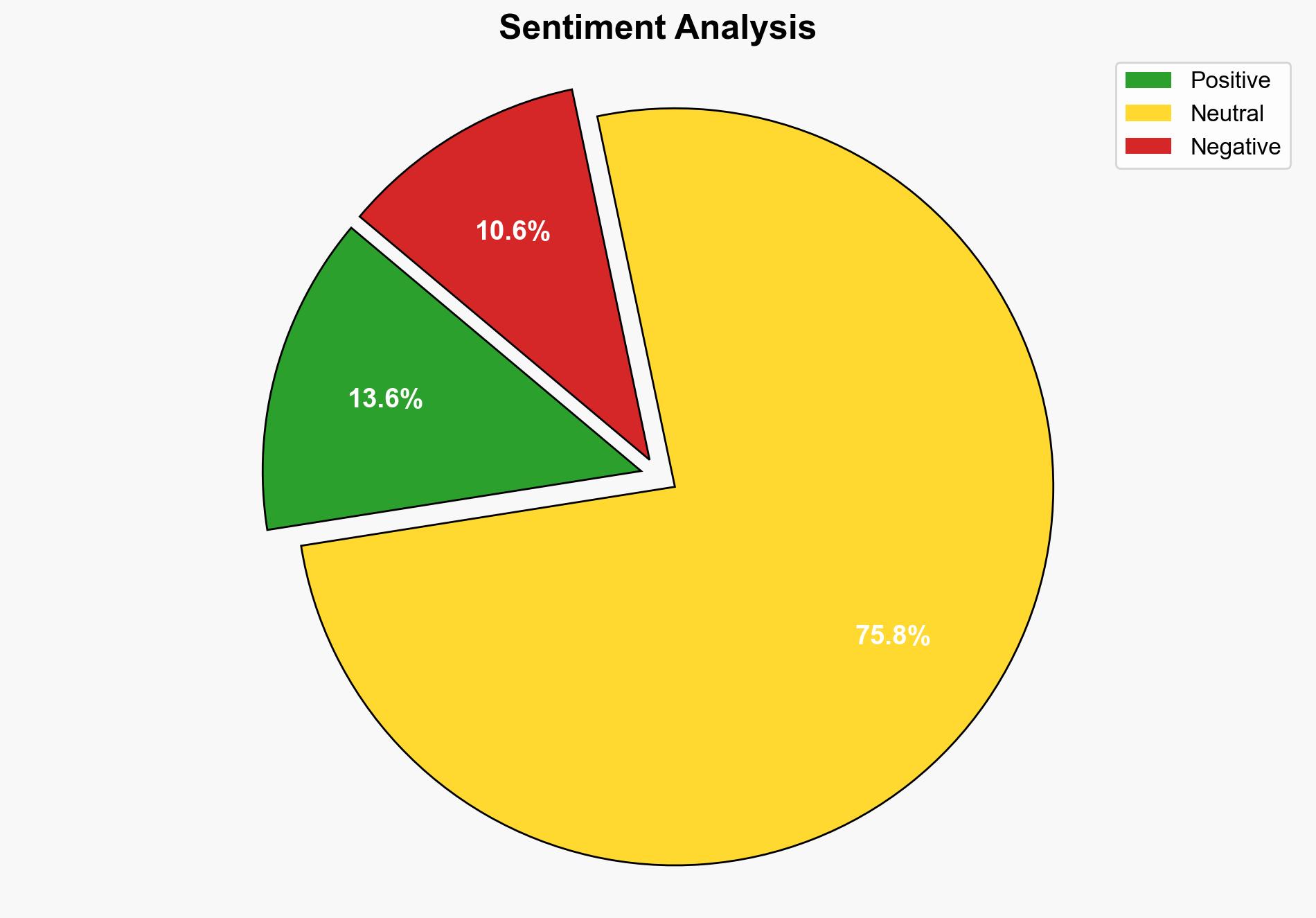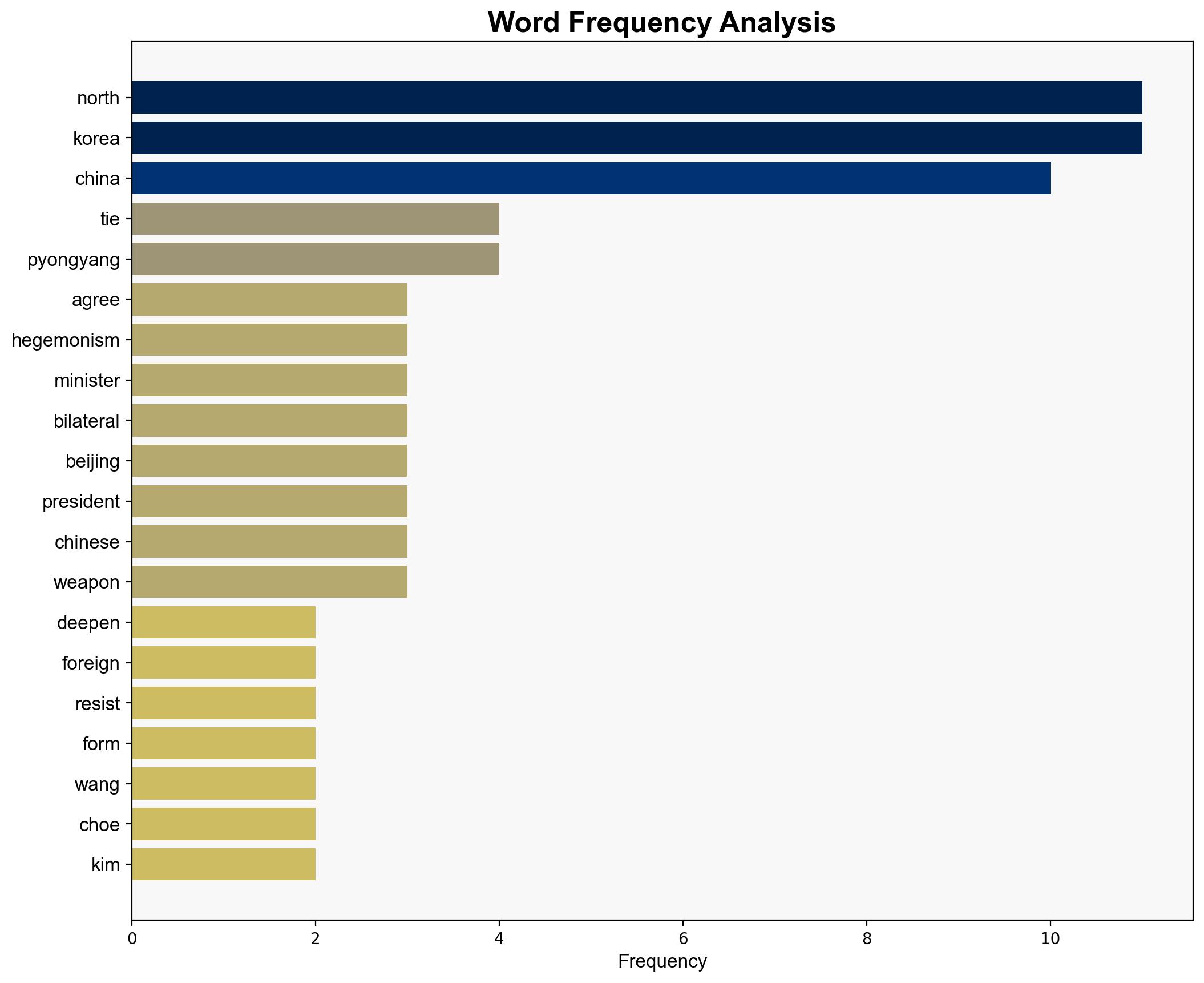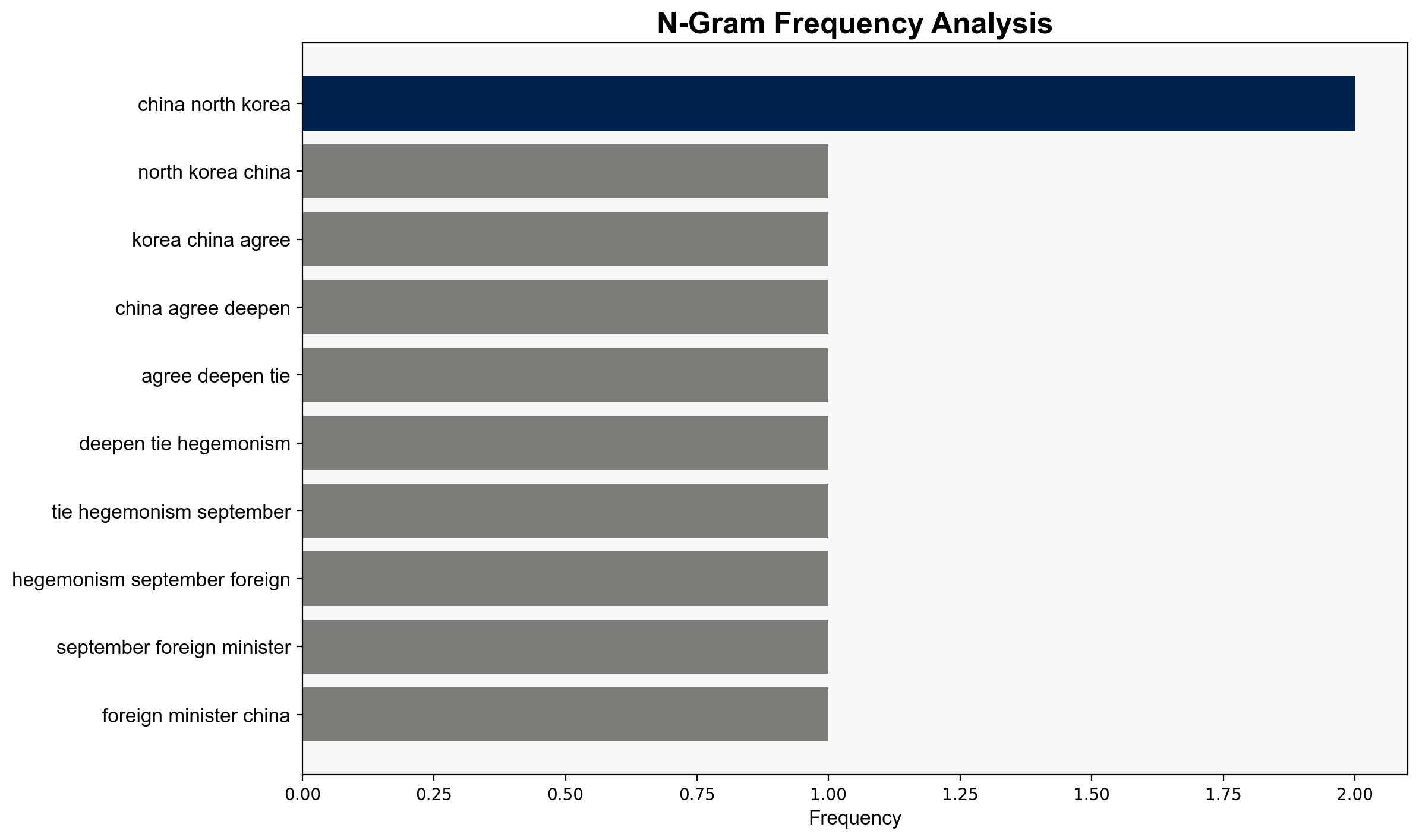North Korea China agree to deepen ties against hegemonism – DW (English)
Published on: 2025-09-29
Intelligence Report: North Korea China agree to deepen ties against hegemonism – DW (English)
1. BLUF (Bottom Line Up Front)
North Korea and China are strengthening their bilateral ties as a strategic countermeasure against perceived hegemonism, primarily targeting U.S. influence. The most supported hypothesis is that this alliance is a strategic maneuver to consolidate regional power and counterbalance U.S. influence in Asia. Confidence level: Moderate. Recommended action: Monitor developments in Sino-North Korean relations and assess potential impacts on regional stability and U.S. strategic interests.
2. Competing Hypotheses
Hypothesis 1: North Korea and China are deepening ties primarily to counter U.S. influence in the region, leveraging their alliance to strengthen their geopolitical stance and resist unilateral actions by the U.S. This hypothesis is supported by their joint statements against hegemonism and the historical context of U.S.-China and U.S.-North Korea tensions.
Hypothesis 2: The deepening ties are primarily a strategic move by North Korea to secure economic and military support from China in anticipation of future conflicts or instability, particularly considering North Korea’s current focus on military expansion and its strained relations with other global powers. This is supported by North Korea’s recent military engagements and China’s willingness to support its regional allies.
3. Key Assumptions and Red Flags
Key Assumptions:
– The assumption that China and North Korea’s primary motivation is to counter U.S. influence.
– The assumption that North Korea’s military focus is solely defensive.
Red Flags:
– Lack of explicit statements from China or North Korea directly naming the U.S. as the hegemon.
– Potential overestimation of China’s willingness to fully support North Korea in a conflict scenario.
4. Implications and Strategic Risks
The strengthening of Sino-North Korean ties could lead to increased regional tensions, particularly with U.S. allies such as South Korea and Japan. There is a risk of escalation if North Korea perceives increased support from China as a green light for aggressive actions. Economically, this alliance might lead to shifts in trade dynamics, potentially impacting global markets. Cybersecurity threats could also increase as both nations have capabilities in this domain.
5. Recommendations and Outlook
- Enhance intelligence gathering on Sino-North Korean communications and military movements.
- Strengthen diplomatic channels with China to mitigate potential conflicts and promote dialogue.
- Scenario-based projections:
- Best Case: The alliance remains symbolic, with no significant impact on regional stability.
- Worst Case: Increased military provocations by North Korea, supported by China, leading to regional conflict.
- Most Likely: Continued strategic posturing without immediate escalation, but increased regional tensions.
6. Key Individuals and Entities
– Kim Jong Un
– Xi Jinping
– Wang Yi
– Choe Son Hui
– Vladimir Putin
7. Thematic Tags
national security threats, geopolitical strategy, regional alliances, U.S.-China relations





